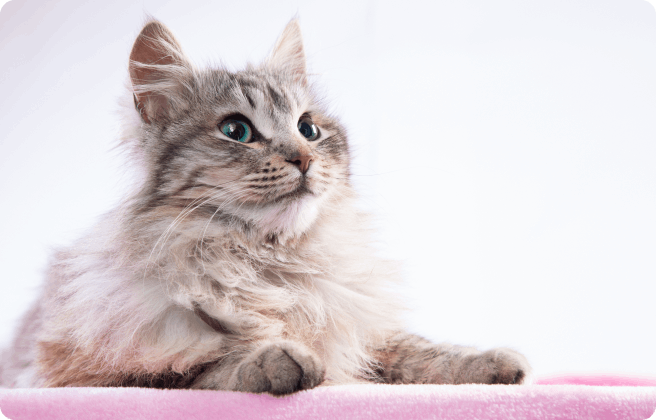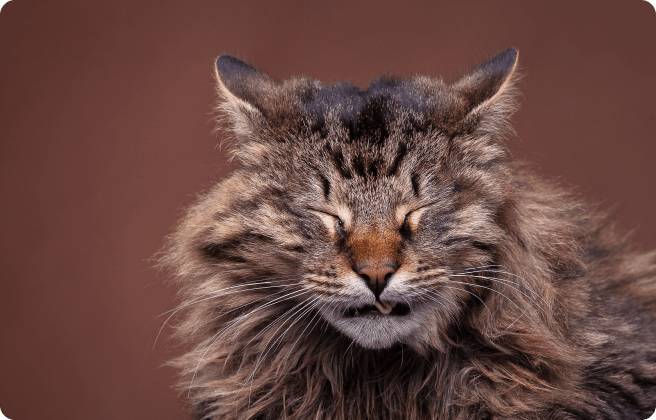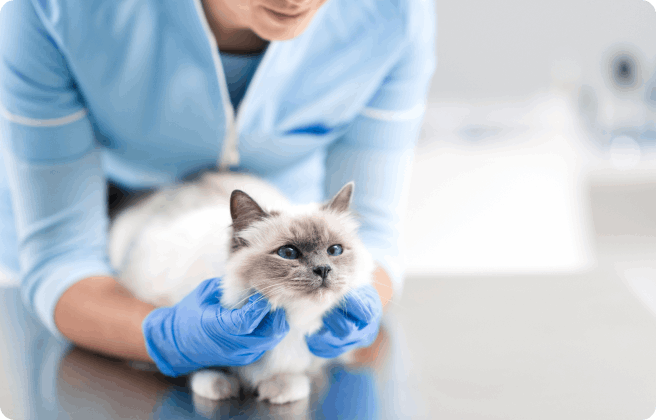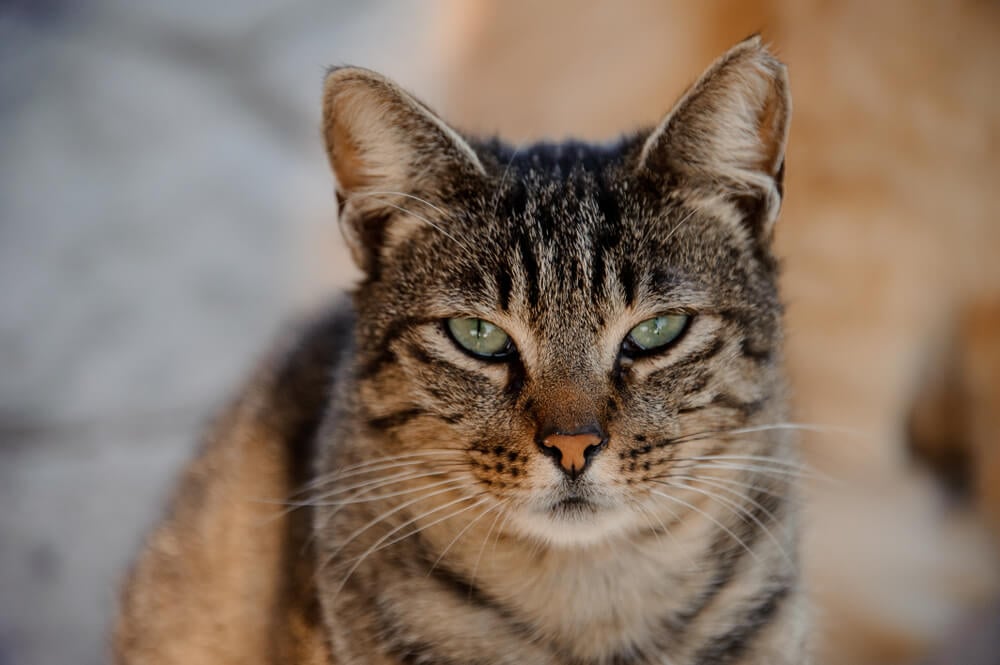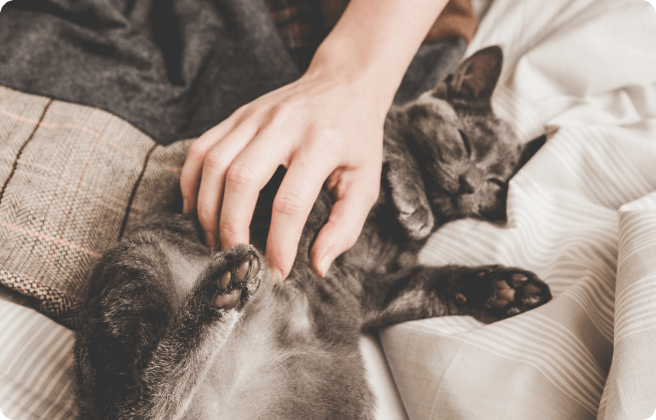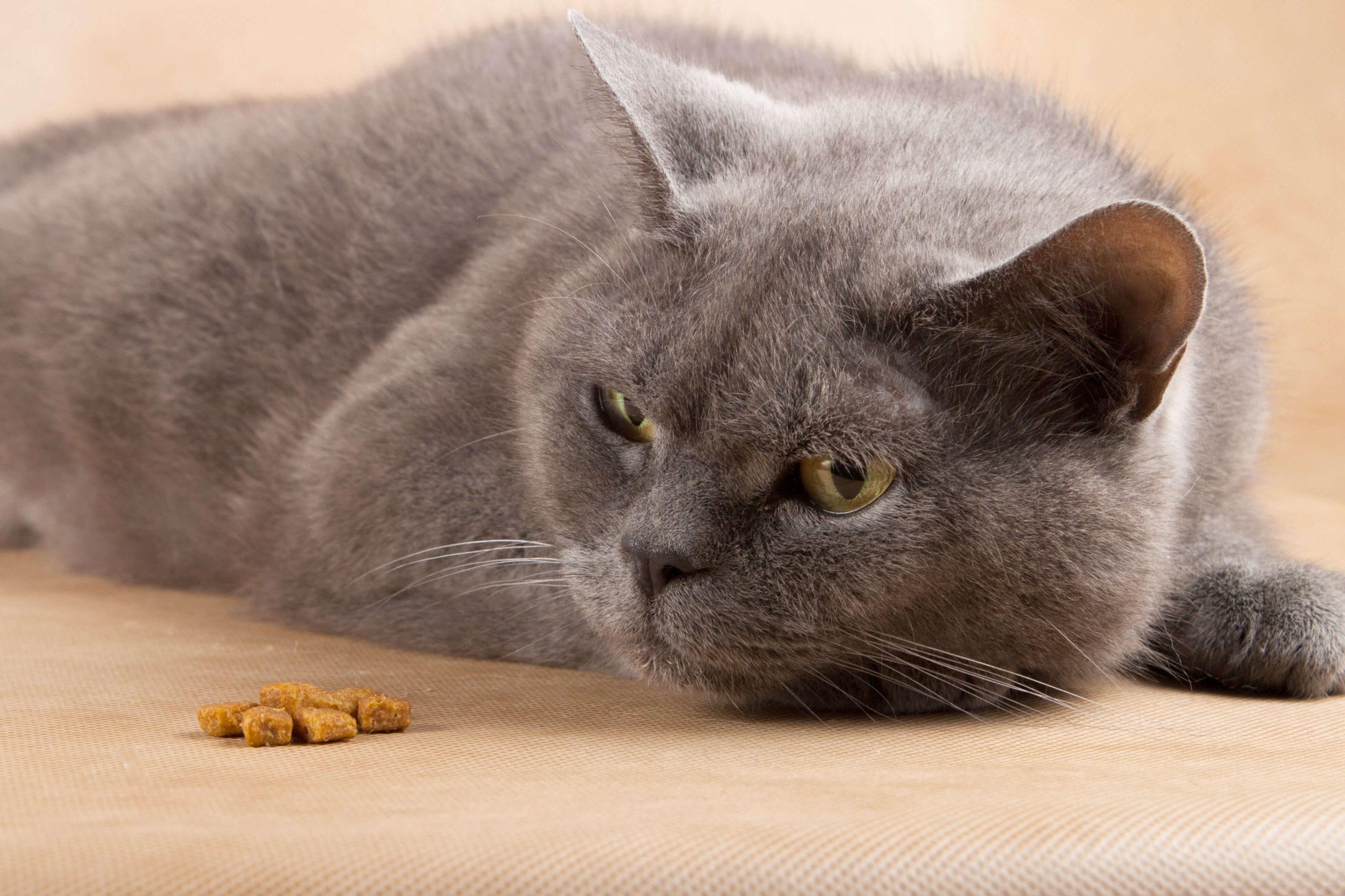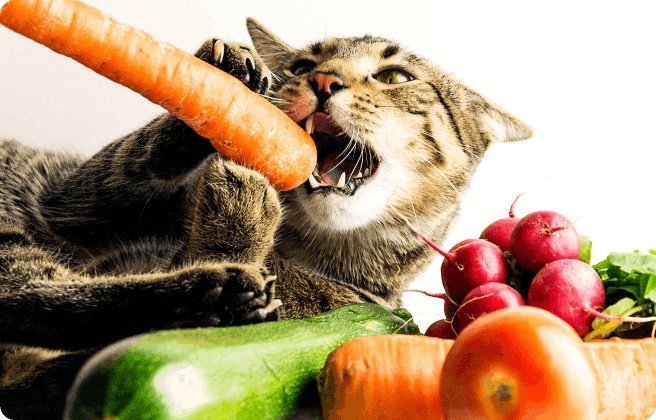
Vegetarian or vegan cat parents might be keen for their cats to follow a plant-based diet, but there are plenty of reasons why this is a bad idea.
Gone green?
In many countries around the world, the number of people choosing to switch to a vegetarian or vegan diet is growing rapidly.
For lots of people, looking after a cat and going veggie are two sides of the same coin — both can be driven by a strong love for animal-kind and a desire to never do them any harm.
Unfortunately, a moral dilemma rears its head when it comes to cat food, the vast majority of which contains meat or fish of some variety.
If you’re the sort of person who’s conscious about what’s on their plate come dinnertime, it only follows that you might apply the same standards when it comes to your cat. However, the big question is can cats eat a vegetarian diet?
The short answer is no, not really. That’s because humans and cats are just built differently.
Why aren’t cats suited to vegetarianism?
Take us human beings, to start. Although many of us eat meat regularly, our bodies aren’t exactly designed for a carnivorous lifestyle. Look at our blunt teeth and puny fingernails, and compare these to your cat’s fearsome fangs and claws. These would have served their wild ancestors well when they were out on the hunt, along with their sharp senses of sight, smell and hearing.
It’s a similar story when you pit our respective digestive systems together too.
Human intestines are famously long, measuring up to 25 feet when unraveled. This impressive length helps us to digest fibrous, plant-based materials with ease and soak up all the nutrients.
In contrast, cats’ digestive systems are much shorter and geared towards a protein-heavy diet. The fact that their stomach acid is much stronger than humans is another indicator that they’re much more equipped to eat meat than we are.
Why do cats need meat?
The truth of the matter is that a meat-based diet is the most effective way to deliver the nutrients, fatty acids and vitamins cats need to be happy and healthy.
Taurine is a particularly important amino acid for cats and unlike humans, they’re unable to synthesize it from other sources and instead rely on obtaining it from meat or fish. A taurine deficiency can be especially bad news for cats, potentially leading to eye problems, gastrointestinal issues and heart failure.
Developments in vegetarian cat food
At this stage, however, it would be remiss not to mention some of the developments happening in the vegetarian cat food world.
Just as the meat substitute industry has bloomed when it comes to humans’ diets, there are several brands offering vegetarian and vegan food for cats, usually fortified with taurine and other essential proteins — and lying on the pricy end of the scale, too.
Other companies have branched out into insect-based cat food, something that might pique your interest if your vegetarianism is driven more by sustainability rather than animal welfare.
Did you know, for example, that the carbon footprint from pet food is considerable. In 2017 it was estimated around 64 million tonnes of carbon dioxide was dumped into the air every year – the equivalent of driving 13 million cars for a year – from meat consumed by animals..
As our pet population grows that footprint is likely to increase. Which has made more of us think about whether our cats can give up meat?
The pros and cons of a meat-free diet for cats
While it’s possible to formulate a vegetarian diet for cats with careful attention to nutrient balance, there are several potential pros and cons to consider:
Pros:
- Ethical considerations: Some pet owners choose a vegetarian diet for their cats due to ethical reasons, such as concerns about animal welfare in the meat industry. Feeding a vegetarian diet can align with their personal beliefs and values.
- Environmental impact: The production of meat-based cat food contributes to environmental issues, including deforestation, greenhouse gas emissions, and water usage. Opting for a vegetarian diet for cats may have a lower environmental impact.
Cons:
- Nutrient deficiencies: Cats have unique nutritional requirements that are primarily met by consuming animal-based proteins, including specific amino acids like taurine, arachidonic acid, and vitamin B12. Formulating a nutritionally complete vegetarian diet for cats is challenging and requires careful consideration and supplementation. Deficiencies in these vital nutrients can lead to severe health issues.
- Taurine deficiency: Taurine is an essential amino acid for cats that is naturally found in animal tissues. A vegetarian diet lacks adequate taurine, which can result in serious health problems, including heart disease, eye issues, and reproductive abnormalities.
- Incomplete protein sources: Plant-based proteins are typically less digestible and have lower bioavailability for cats compared to animal-based proteins. This means that even with proper supplementation, the protein in a vegetarian diet may not be as efficiently utilized by a cat’s body.
- Digestive issues: Cats have a relatively short digestive tract designed to digest and absorb nutrients from animal proteins. A vegetarian diet may not be as well suited to their digestive physiology, potentially leading to digestive upset, diarrhea, or malabsorption issues.
- Potential for urinary tract problems: Cats have a naturally concentrated urine, and their urinary pH needs to be maintained within a specific range to prevent the formation of urinary crystals and stones. A vegetarian diet can alter urine pH, potentially increasing the risk of urinary tract problems.
- Individual variability: Cats have different nutritional requirements and tolerances. While some cats may tolerate a vegetarian diet better than others, there is no guarantee that every cat will thrive on a meatless diet. Some cats may not tolerate the diet well and may experience health issues or difficulty maintaining optimal body condition.
What does our in-house pet nutritionist Laura Ward have to say about the issue?
As obligate carnivores a cat’s nutritional requirements are different to ours (and dogs). They have a requirement for nutrients found in animal ingredients and are not well suited to vegetarianism or veganism. For cats a vegetarian or vegan diet can lead to dangerous deficiency diseases.
Pets have a requirement for nutrients, rather than ingredients, meaning that a nutritional requirement is not for meat, but the nutrients which meat supplies. This is where vegetarian diets supply these nutrients from other sources.
For cats however, who are evolved to hunt and eat an animal based diet, vegetarian and plant-based diets are less suitable for them and can lead to deficiencies.
If you choose to feed your cat a plant-based diet, I recommend that your vet conducts regular checks for deficiency and any signs of poor health.
Depending on the motivations for feeding a plant-based diet, alternatives are often preferable. For instance feeding a diet with credentials for sustainability, use of only humanely sourced meats or even utilizing insects as the protein source. In the ever expanding pet food choices, there will certainly be an option to provide your carnivorous cat with the balanced nutrition which they need, as well as meeting your priorities for animal welfare and sustainability.
Always seek veterinarian advice
If you are considering making a drastic change to your cat’s diet — even if it’s unrelated to going vegetarian — you should run your plan by a vet and they will be able to offer their professional judgment on whether it will continue to keep your cat healthy or not.
We uphold the highest editorial standards when creating the authoritative content pet parents rely on and trust.
Every piece of clinical content on the Cat Food Advisor is reviewed by our certified Veterinary Advisory Board, which consists of licensed veterinarians and medically certified specialists.
Our reviews are completely independent; we are not paid by any pet food company to promote their products favorably. We do not accept money, gifts, samples or other incentives in exchange for special consideration. For more information see our Disclaimer & Disclosure page.




